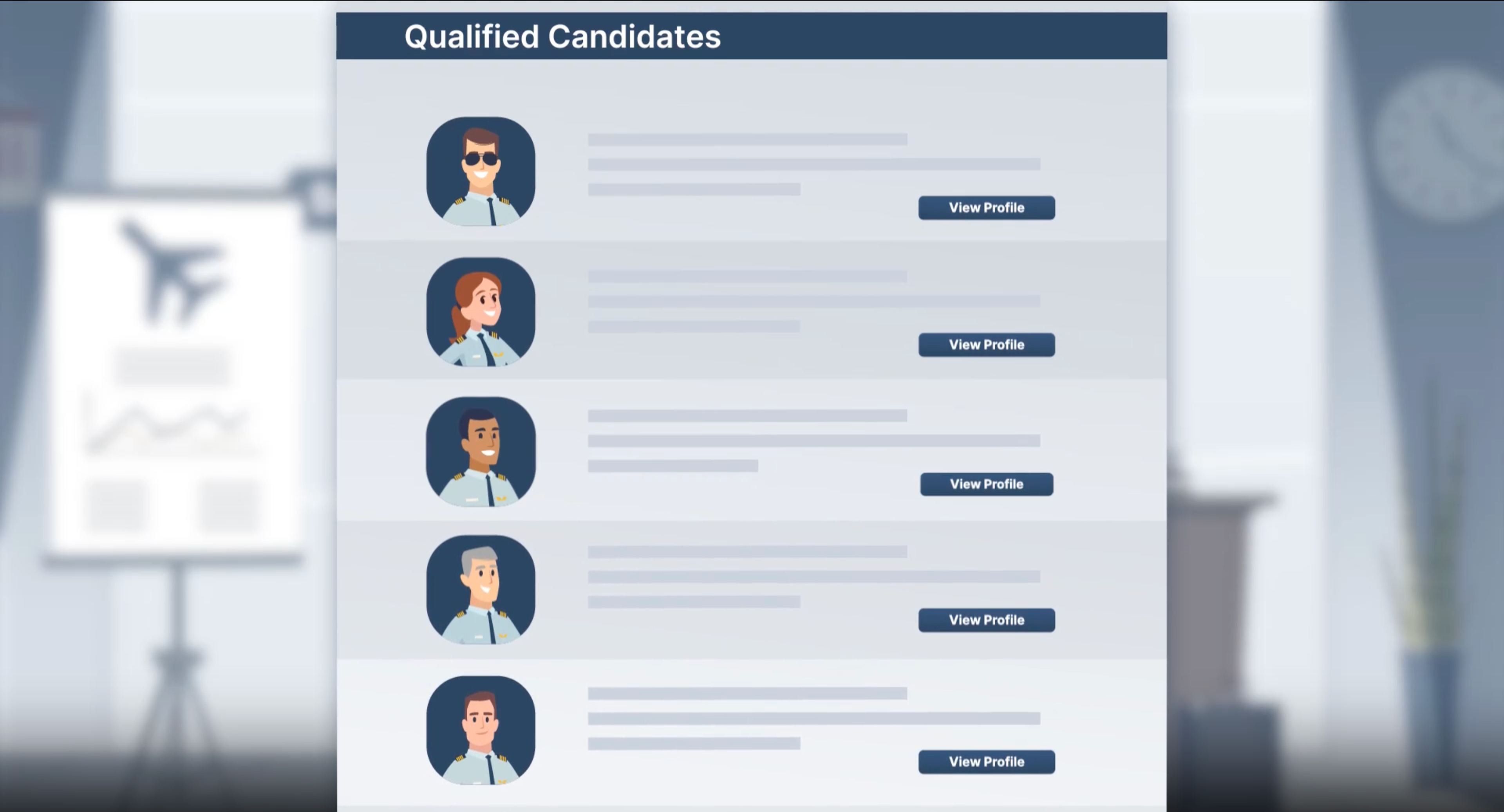

At BizJetJobs, we are often asked by pilot employers and pilot job-seekers alike why a job posting either specifies - or doesn't specify - salary. As an employer, should you add salary information to your pilot job posting on BizJetJobs? As a pilot, should you only consider jobs that include salary information?
We're here to say, unequivocally - that it depends. It's not cut-and-dry anymore whether or not to include salary in job postings. Millennials as a group are more open to discussions about how much money they make, where older generations tend to be more guarded. Many employers are feeling caught in the crossfire. Even with growing sentiment in favor of salary disclosure in job listings, over half of U.S. employers still decline to show salary details in job postings.
At BizJetJobs, we anticipate that as time marches on, the trend might be towards more disclosure. But instead of getting swept up in a trend, we wanted to provide a full discussion of the pros and cons of including salary in your pilot job postings.
Cons
1. Salary Is Only One of Many Criteria Job-Seekers Evaluate
Employers are looking for skilled pilots who not only are qualified, but also a cultural fit with their organization. When salary is listed in job postings, it definitely grabs applicants' attention. They might be more likely to focus on the money and, if it seems too low, disregard other benefits of working for the company. On the other hand, when salary seems too good to be true, pilots will often overlook red flags about corporate culture with an "I'd do anything for that salary," attitude.
A high salary isn't enough to satisfy and retain new hires by itself. The day-to-day work environment also has to be a fit. While salary is very important and everyone should know what they're worth, salary disclosure can seriously skew initial impressions and gut feelings about a company.
2. Salary Disclosure Can Mean Less Negotiating Power for Employers
At BizJetJobs, we often hear from employers that not including salary numbers or even a range gives them more flexibility in considering a wide range of candidates.Traditionally, the first party to supply a number in a salary negotiation is in the weaker negotiating position because they have essentially shown their hand. Omitting salary from pilot job postings allows companies to better look after their bottom line. Instead of keeping everyone within a "band" or range, it allows employers to make better offers to favored applicants, and offer lower salaries to applicants who aren't as desirable.
As a pilot, if you are offered less than the going rate, remember you can decline and start the negotiation process with your prospective employer. Often, HR needs to get turned down before they are given the thumbs up to negotiate a higher salary.
3. Including Salary Info Means Disclosure to Current Employees - and Competitors, Too
When other employees know how much a new hire stands to make, this can cause problems with morale. Keeping salary private helps mitigate jealousy and infighting among employees. Salary information also gives competitors an edge, as they try to poach current employees or applicants. Given the current pilot shortage, this can become a problem.
4. Not Disclosing Salary Can Give Pilots the Upper Hand
On the flip side, pilots that apply to jobs without a salary listed are likely going to be at an advantage as it means less competition. The fewer applicants, the higher the salary a pilot can likely negotiate. In this case, not disclosing salary is be a "con" for employers, but a "pro" for pilots.
Pros
1. Salary Disclosure Means More Applicants
A study by SMART Recruit Online found that when job ads included a salary range, they got over 30% more applicants. Having a larger pool of qualified applicants to choose from makes sense from a hiring perspective, and gives companies more negotiating power.
Jennifer Deal's study 'What Millennials Want From Work', finds that "millennials are most likely to discuss their compensation with their parents (71%) or their friends (47%). In comparison, older staff are substantially less likely to discuss their compensation with co-workers (19%), friends (24%) or parents (31%)." Millennials already make up the majority of the U.S. workforce. Employers that cater to their preferences in the application process will attract more applicants now and in the future.
2. Salary Disclosure Promotes a Culture of Openness and Fairness
Instead of playing hardball or keeping things shrouded in mystery, employers who put the numbers on the table engender more trust among their staff in the long run. When you know you work for or run a great company, you don't have to fear competitors, or disgruntled employees. When you treat people fairly, your people will go to bat for you. Over time, employers who foster this type of culture should see more applicants choosing their company. Including salary in job postings isn't the only thing you do to promote a culture of openness and fairness. When you talk about your team and the importance of talent, or make statements about your company's appreciation for its people, you have to also know you're paying them fairly.
What Will You Decide?
Of course, whether or not you decide to include salary details in your pilot job postings depends on your company's individual needs and preferences. There are pros and cons to either option. With Millennials making up more and more of the job market, we anticipate that as time marches on, the trend will be towards more disclosure.
If you're interested in learning more about pilot salary, here are more resources created by our team ... Pilot Salary Survey
If you’re not sure about whether or not to include salary information in your pilot job posting, give us a call.
At BizJetJobs, we help connect pilots and ideal-fit employers every day. We recognize that every pilot’s wants, needs and desires in a pilot job may be different, so we have tools to help our pilot Members find their ideal match in terms of location, schedule, aircraft, types of trips and more. We’re happy to be a sounding board or provide feedback for our job-seeking pilot, employer and flight attendant Members.





